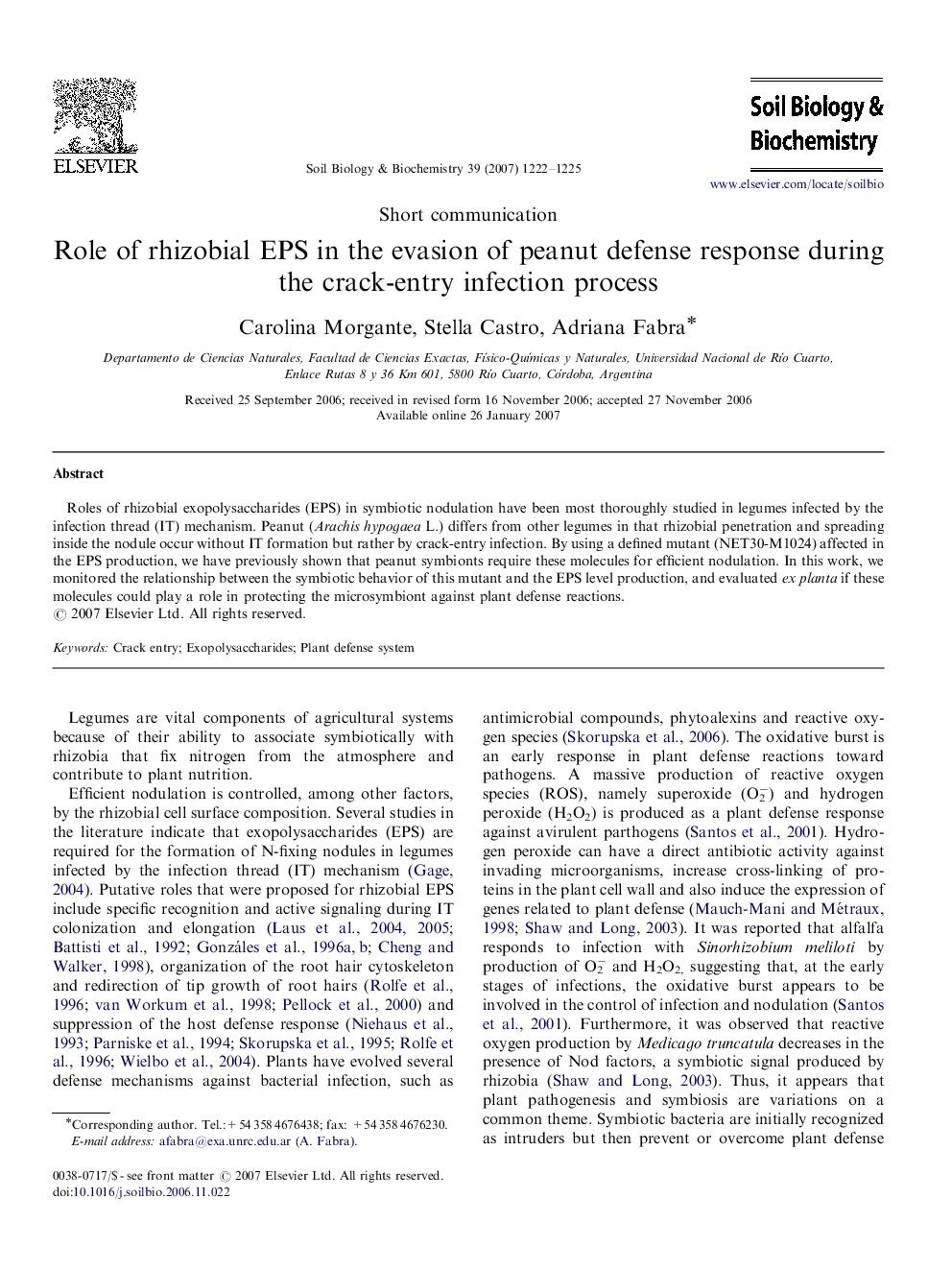| Article ID | Journal | Published Year | Pages | File Type |
|---|---|---|---|---|
| 2026431 | Soil Biology and Biochemistry | 2007 | 4 Pages |
Roles of rhizobial exopolysaccharides (EPS) in symbiotic nodulation have been most thoroughly studied in legumes infected by the infection thread (IT) mechanism. Peanut (Arachis hypogaea L.) differs from other legumes in that rhizobial penetration and spreading inside the nodule occur without IT formation but rather by crack-entry infection. By using a defined mutant (NET30-M1024) affected in the EPS production, we have previously shown that peanut symbionts require these molecules for efficient nodulation. In this work, we monitored the relationship between the symbiotic behavior of this mutant and the EPS level production, and evaluated ex planta if these molecules could play a role in protecting the microsymbiont against plant defense reactions.
